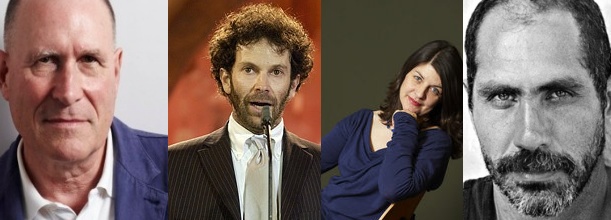BAFTA & BFI Screenwriters’ Lecture Series – William Nicholson

As Bill Nicholson, the screenwriter most famed for Shadowlands, Gladiator and Elizabeth: The Golden Age strides on stage at BAFTA, he wavers a little when he sees the projection on screen behind him. It is perhaps the most famous quote from Gladiator, undoubtedly his most well-known movie. It reads: “And I will have my vengeance, in this life or the next.”
Nicholson chuckles, and explains that this quote ironically sums up the art of screenwriting. “That’s probably my most famous line, and I only wrote half of it.” The audience laughs, and is immediately drawn in Nicholson’s eloquence, peppered with moments of complete self-deprecation (“It’s not hard to become more successful than me. The standard is very low.”) and total immodesty: “I like Russell Crowe. I think he’s a marvellous actor. But he’s never done anything as good since, has he?”

In general, screenwriters tend to be one of the most overlooked parties when people are doling out the sycophantic praise. Let’s face it, the Academy Award for Best Original Screenplay tends to be the one where everyone watching at home goes to fill up on Doritos, and everyone actually at the award ceremony goes to fill up on Tim Allen’s cocaine. Interestingly, Best Original Screenplay has only been an Academy Award since 1940, whereas Best Adapted has been around since 1928. Can we consider this a litmus test for film’s appreciation of its most pivotal craftsmen? As we enter an era where major movies are increasingly more based on visual payoffs rather than emotional ones, now more than ever is the time to honour film’s best screenwriters.
This is exactly what BAFTA and the BFI intend to do with their lecture series ‘Screenwriters on Screenwriting’, the project’s second run since 2010’s inaugural success. The goal is not only to appreciate screenwriters as masters of an art form, but also to provide inspiration and motivation for aspiring screenwriters. In this respect, there is perhaps no better choice for an opening speaker then Bill Nicholson. His forty-minute lecture relives the highs and woes of screenwriting, unashamedly candid and consistently encouraging. He mentions Sean Connery’s interest in playing C.S. Lewis in Shadowlands, even divulging that Connery only wanted the role because “I want people to know I’m clever.”
“These caveats are surprisingly common. I was once asked to write a role for Jack Nicholson, the brief for which was that he wanted to be a General.”
Like many screenwriters, Nicholson fell into the profession after some colleagues at the BBC discovered that he has the writer of several (failed) novels. “I liked screenwriting, mostly because it was short. For my novels I’d spend years and years slogging away, being terribly pretentious and trying to be the next Proust, or Tolkein, or maybe a perfect combination of the two. I was trying to be my idea of a ‘Great Writer’ which for any writer is the kiss of death.”
When he was asked to write something cheap for a free 70-minute slot, the end result was Sweet As You Are, starring Liam Neeson and Miranda Richardson. The story focused on lecturer who contracts HIV after an extra-marital affair with a student, and as a result may have to deal with the possibilities of both having the virus himself and having passed it on to his wife. While the movie was made in 1988, just after AIDs became an acknowledged global crisis, Nicholson admits that he had no real interest in making any grand point about AIDs. Rather, he wanted to focus on a wife forcing to accept her husband’s infidelity along the fact that he may be dying and that she may also be dying as a result. What soon followed were BAFTA nominations, and subsequently, a prestigious career in film.
Of course, there’s a Q&A afterwards. There’s always a Q&A afterwards. Despite every question being precluded by the phrase “I’m writing a screenplay and I was wondering if…” Nicholson manages to handle the tedious session with his usual grace, never discouraging or patronising his needy following. “As writers, we are very fortunate” he finishes, in a thoughtful tone “in that we live our lives twice.”







Recent Comments